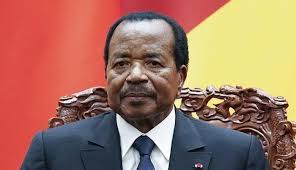The longest-serving, national leader and oldest sitting head of state globally, President Paul Biya of Cameroon, has passed on at a military hospital in Paris, France.
His passage marks the end of an era for the Central African nation which has been in the stranglehold of the maximum ruler for 42 years.
The Africa’s longest-serving president and one of the world’s most enduring political figures surrendered to death at the age of 91.
Rumors about Biya’s health had earlier circulated for weeks, igniting political speculation and concerns over the country’s future.
His extended absence following the China-Africa Summit, held from September 4 to 6, 2024, sparked widespread debate.
Paul Biya, who first took oath of office as President on November 6, 1982, after serving as Prime Minister for seven years, was a dominant figure in African politics, though from the negative prism.
In a public letter, a lawyer, Christian Ntimbane, raised concerns on the lack of updates on Biya’s health, urging the government to be transparent.
“If he is on vacation, say so. If he is sick, say that too,” Ntimbane wrote in an appeal to the Director of the Civil Cabinet, Samuel Mvondo Ayolo.
Public anxiety in Cameroon reached a fever pitch in the absence of official information, with reports suggesting that Biya was either recovering in Switzerland or receiving treatment in France.
The announcement of his death has now shifted attention to Cameroon’s succession plans, which have long been the subject of speculation given Biya’s iron fist administration, advanced age and lengthy rule.
On the social media platforms such as X (formerly Twitter), users expressed different opinions on the country’s future.
Some expressed the relief that Biya’s death marks an end to his authoritarian grip on power.
Others suggested that France may intervene in Cameroon’s political future, potentially pushing for Biya’s eldest son, Franck Emmanuel Biya, to replace him due to gains accruing to France.
Political insiders, including sources from news outlet, Cameroon Concord, have indicated that a framework may be in place to ensure a smooth transition.
Reports suggest that Robert Nkili, Biya’s brother-in-law, could be installed as interim president.
This has raised concerns among opposition leaders, most notably Maurice Kamto, who could challenge any attempt to install a dynastic successor and push for democratic reforms.
Biya, who first took office as president on November 6, 1982, after serving as prime minister for seven years, was a dominant figure in African politics.
His 42-year rule made him the second-longest-serving president on the continent, trailing only Equatorial Guinea’s Teodoro Obiang Nguema.


















